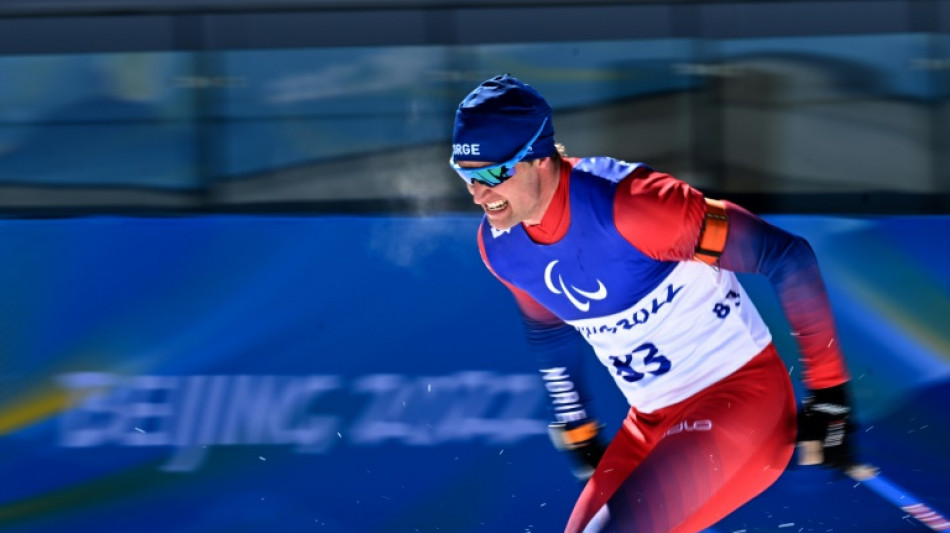
| RBGPF | 100% | 60.1 | $ | |
| RELX | 0.51% | 46.81 | $ | |
| SCS | -1.33% | 13.54 | $ | |
| RYCEF | -0.29% | 6.78 | $ | |
| GSK | -0.38% | 34.02 | $ | |
| RIO | -1.53% | 62.03 | $ | |
| BTI | 1.01% | 37.71 | $ | |
| AZN | -0.06% | 66.36 | $ | |
| CMSC | -0.65% | 24.57 | $ | |
| NGG | -0.68% | 62.83 | $ | |
| CMSD | -0.61% | 24.43 | $ | |
| VOD | -0.56% | 8.86 | $ | |
| BCC | -2.76% | 148.41 | $ | |
| JRI | -0.98% | 13.24 | $ | |
| BCE | -1.46% | 26.63 | $ | |
| BP | -1.24% | 28.96 | $ |

Norwegian great Ulset to bow out of Paralympics for play dates
After two decades of Paralympic greatness, Norway's Nils Erik Ulset is hanging up his skis and gun and heading into retirement for some important play dates with his toddler son.
Ulset, 38, made his Paralympic debut in Salt Lake City in 2002 and has since netted 13 medals including three gold competing in biathlon and cross-country skiing.
On Friday, he'll race in his last event -- biathlon -- at the Beijing Winter Paralympics and is hoping to end his sporting career on the podium once more.
"I'm hoping to put together a really good race and have fun out there," he told AFP in Zhangjiakou, outside the Chinese capital.
Ulset won't be straying far from the competition sidelines -- he will continue working as a para-sports consultant for Norway's Olympic and Paralympic Committee.
"Sport has given me so much... now I can try to give back," he said.
- Professionalism -
Ulset was born with Charcot-Marie-Tooth disease, a condition that affects one in 2,500 people.
It impacts his balance and gives him about 25 percent of normal muscle strength in his lower legs.
He began skiing aged four and his older brother John -- who has competed at World Cup level in biathlon in able-bodied sport -- encouraged him to get involved in the sport.
Ulset spent his childhood and youth competing against non-disabled athletes before he qualified for Norway's Paralympic team.
Since his first foray into international events two decades ago, Ulset said he's witnessed a transformation in the professionalism and quality of para competition.
"The big change there came around the (2010) Vancouver Games," he said.
Ulset trains with many non-disabled athletes back in Norway and has watched para-sports push the boundaries.
In the past two decades, some Norwegian Winter Paralympians have become household names.
"From Sochi (2014 Games) until now, especially the last three or four years... the awareness has changed a lot, you now get recognised as a para-athlete," he said.
"Before, no one knew you."
- Life balance -
Ahead of international races, Ulset has a heavy twice-daily training schedule which takes a heavy toll on family life.
His wife Ingrid works full-time as a physiotherapist and has long held the fort at home.
"She has sacrificed a lot for me to be able to do this so it's time to go home and give back," he said.
Play time with toddler son Olav, two, is at the top of his agenda.
"I've been away from him for over a month now and it's starting to really take its toll," he said.
Modern technology helps keep the family in touch, but Olav prefers his dad in real life rather than on a screen.
"I've been doing some (video calls) but he's normally so busy running around with his tractors and trucks so I can barely see him passing the camera," Ulset said, laughing.
"He's very active. I wouldn't be surprised if he has a career as an athlete."
M.Sutherland--NG



